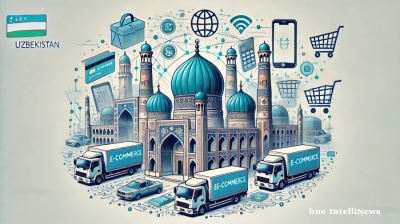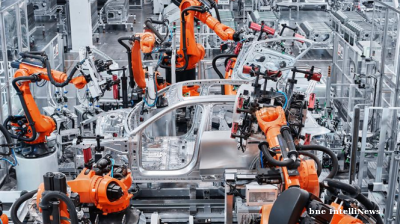Russian internet major Yandex is increasingly looking to boost the monetisation of its technologies, on the one hand, and leverage these technologies to support its international expansion, on the other, VTB Capital commented following the publication of 4Q21/2021 results and management update of the company.
As reported by bne IntelliNews, Yandex posted strong 4Q21/2021 results under US GAAP, growing across multiple ecosystem verticals and setting an ambitious guidance for 2022.
VTB Capital notes that Yandex Deputy CEO Tigran Khudaverdyan highlighted the company’s large investments in R&D over the past 20 years, which allowed it to create world-class technologies, which the company is considering deploying abroad so as to take advantage of the strong opportunities there.
The CEO specifically mentioned ride-hailing, self-driving delivery robots (Yandex.Rover), routing, and database management systems (ClickHouse) as recent examples.
"This statement supports our call that Yandex's in-house technologies, which were initially developed to power the company's own product offerings, could become a source of value on their own, not least through opening up new international opportunities," VTBC argues.
The analysts at VTBC see two potential opportunities - that of vertical and horizontal expansion.
The vertical expansion of Yandex implies replicating on other markets services, which were initially launched in Russia. Ride-hailing, which is now present in 20 countries, is the best example of this type of expansion. Yandex also recently experimented with e-grocery business outside of Russia.
"The key challenge for this type of technology-driven international expansion is that Yandex needs to develop full-scale operations on other markets, which faces competition from local players and potential regulatory risks," VTBC warns.
The horizontal expansion implies Yandex providing technology, which could be used by different companies in different industries to enhance their business prospects, such as collaborations with self-driving delivery robots.
This type of technology-driven international expansion carries lower risks and the strong potential for building international partnerships, VTBC believes, while affirming a Buy call on VTBC shares with an estimated total return over 12 months of 91%.
VTBC also reminded that the recent funding round of ClickHouse, in which Yandex is a significant minority shareholder, valued this company at $2bn. "This also highlights that technologies could be a source of multi-billion dollar value creation for Yandex," the analysts believe.
Furthermore, technology-driven international development could significantly expand business opportunities and addressable markets, diversify risks through expansion of geographic exposure, and enhance funding opportunities to develop new technologies.
VTBC also continues to see significant potential at Yandex's self-driving cars, although the monetisation potential "could be backloaded".
Yandex is Russia's leader in self-driving technology and in 2020 doubled its fleet of self-driving vehicles. Operational driverless taxis were seen as possible by 2024 by the analysts, while Yandex.Rover delivery robots were expected to be commercially operational as of this year.
Toloka, Yandex's data-centric AI solution, that enables clients to generate machine-learning data at scale, already has over 2,000 clients from the US, Europe, Israel and the CIS, including AliExpress (AER), Tinkoff, Samsung, Leroy Merlin, Kaspersky and IVI online cinema.
In 2021 Yandex for the fifth year in a row topped the list of most valuable tech and internet companies with a valuation of $23bn. Apart from e-commerce, its investment case now rests on developments in transportation, FinTech and foodtech, with the developed ecosystem seen as a key advantage.
Tech

Iranian startup targets computer science skills gap with project-based learning model
Iranian startup CS12 introduces project-based computer science education for 13-15 year-olds to bridge university-job market gap and reduce brain drain, expanding from Tehran to Arak, Sari and Shiraz.

Uzbekistan’s unicorn ecommerce startup Uzum adds London to list of potential IPO locations
Co-founder says he's against a fast geographical expansion. Wants to win and dominate home market to demonstrate to partners fintech is capable of outperforming on other markets.

China increasing its lead in robot technology use
China is consolidating its dominance in the global industrial robotics market, accounting for 41% of the world’s operational robot stock and more than half of all new installations in 2024, according to the International Federation of Robots.
_(1).jpg)
OpenAI to invest up to $25bn in Argentina under Milei incentive scheme
Artificial intelligence giant OpenAI and energy company Sur Energy have signed a letter of intent to develop a data centre hub in Argentina requiring investment of up to $25bn.


